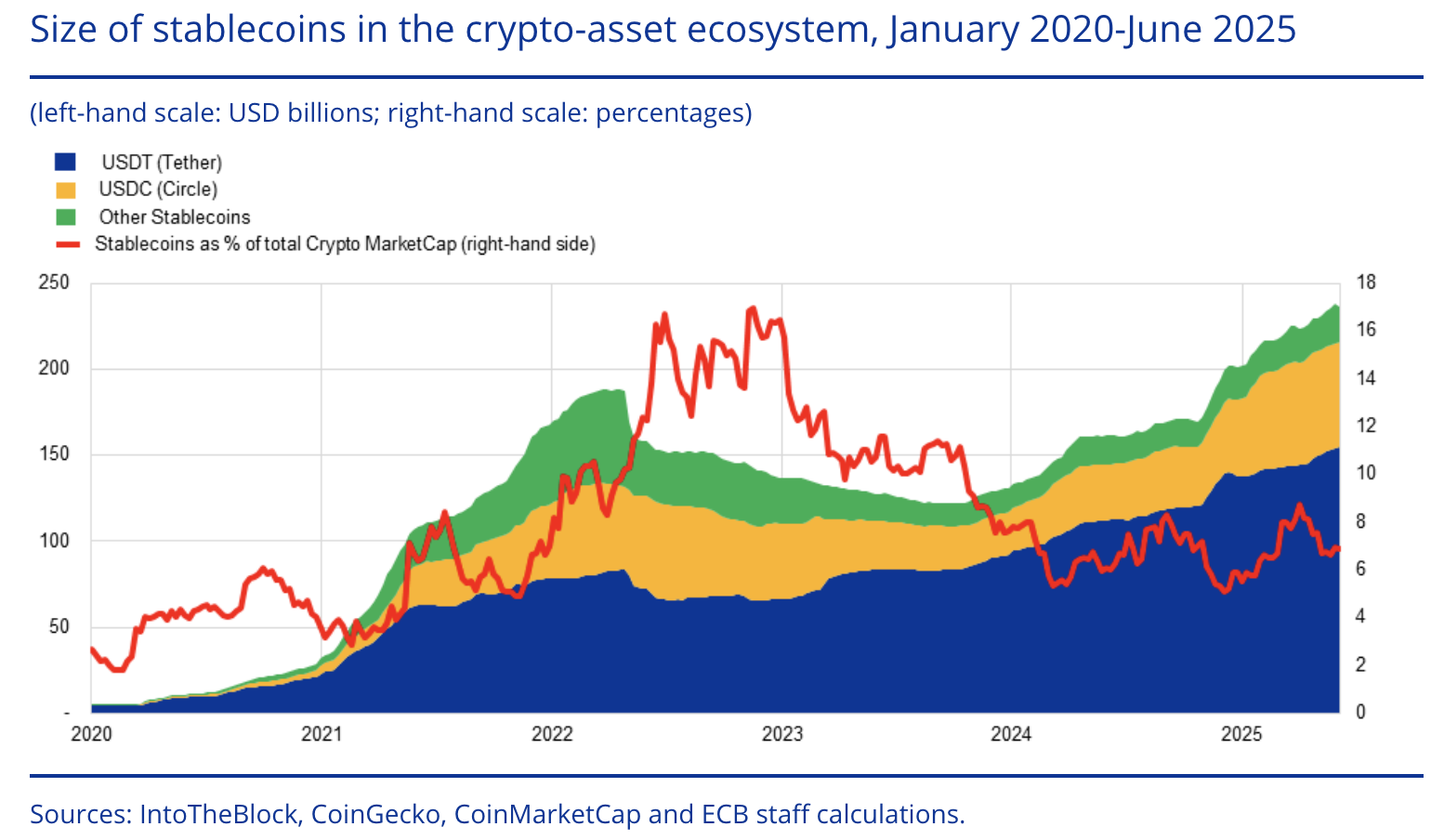ECB Advisor Warns: Dollar-Denominated Stablecoins Are Becoming Too Powerful—Here’s Why It Matters
The European Central Bank isn't mincing words—its advisors are ringing alarm bells about stablecoins' unchecked rise.
Dollar-pegged crypto is eating the financial system. And regulators? They're scrambling to catch up.
Here's the breakdown:
The Domino Effect of Dollar Dominance
When USDT and USDC call the shots, monetary policy gets messy. The ECB fears shadow dollarization—where greenback-backed tokens undermine the euro's sovereignty. No central bank likes playing second fiddle to Silicon Valley and Wall Street.
A Trojan Horse for Systemic Risk
Stablecoins promise stability but deliver volatility. Just ask anyone who lived through Terra's collapse. Now imagine that contagion—but with ten times the market cap. (Cue nervous laughter from risk managers.)
Bonus Finance Jab: Nothing says 'decentralization' like replicating the Federal Reserve's monetary policy with extra steps and less accountability.
The bottom line? Stablecoins won't self-regulate. And if history's any guide, neither will the banks. Place your bets—just don't say nobody warned you.
 Source: From hype to hazard: what stablecoins mean for Europe | The ECB Blog
Source: From hype to hazard: what stablecoins mean for Europe | The ECB Blog
The danger, Schaaf warns, is not just speculative. As stablecoins become more widely adopted for payments, settlement, and even savings, they increasingly bypass traditional financial systems—potentially undercutting the ECB’s ability to implement effective monetary policy.
“The larger their footprint, the harder these [dollar-dominated stablecoins] WOULD be to unwind,” Schaaf writes. “This would mean higher financing costs relative to the United States, reduced monetary policy autonomy and geopolitical dependency” for Europe.
Stablecoins’ growing real-world impact and risks to banks
Schaaf points out that stablecoins are already being tested for real-world applications beyond crypto trading, including remittances, e-commerce, and institutional settlement. U.S. firms such as Amazon and Walmart are exploring stablecoin integrations, while global payment giants Visa and Mastercard are rolling them into international services.
Moreover, stablecoins begin to offer interest-like features, such as yield from lending or liquidity provision, which poses a threat to traditional banking models, especially in deposit-heavy economies like the euro area.
“If interest-bearing stablecoins became common… they could divert deposits from traditional banks, which could jeopardise financial intermediation and hamper credit availability,” Schaaf writes.
Schaaf’s call to action to protecting the euro
To tackle the risks posed by stablecoins, Schaaf lays out several practical steps Europe should take to protect its financial system and strengthen the euro’s global role.
His main suggestion is to support well-regulated, euro-based stablecoins. Such stablecoins, he argues, could not only “serve legitimate market needs” but also help “reinforce the international role of the euro,” offering a viable alternative to the growing dominance of dollar-based tokens.
Another key part of the plan is the digital euro, which Schaaf sees as “a robust line of defence of European monetary sovereignty,” especially for everyday payments like shopping and online purchases.
Schaaf also points to the need for innovation in larger, behind-the-scenes payments between banks and financial institutions. Cross-border payments are still slow and expensive. Schaaf argues that distributed ledger technology (DLT) could fix this by allowing faster, more direct settlement of tokenised assets using central bank money. He highlights two new projects from the European Central Bank—Pontes and Appia—as important steps forward.
Finally, Schaaf stresses the importance of global cooperation. Without common rules, he warns, “we risk fuelling instability, regulatory arbitrage and global US dollar dominance.”

